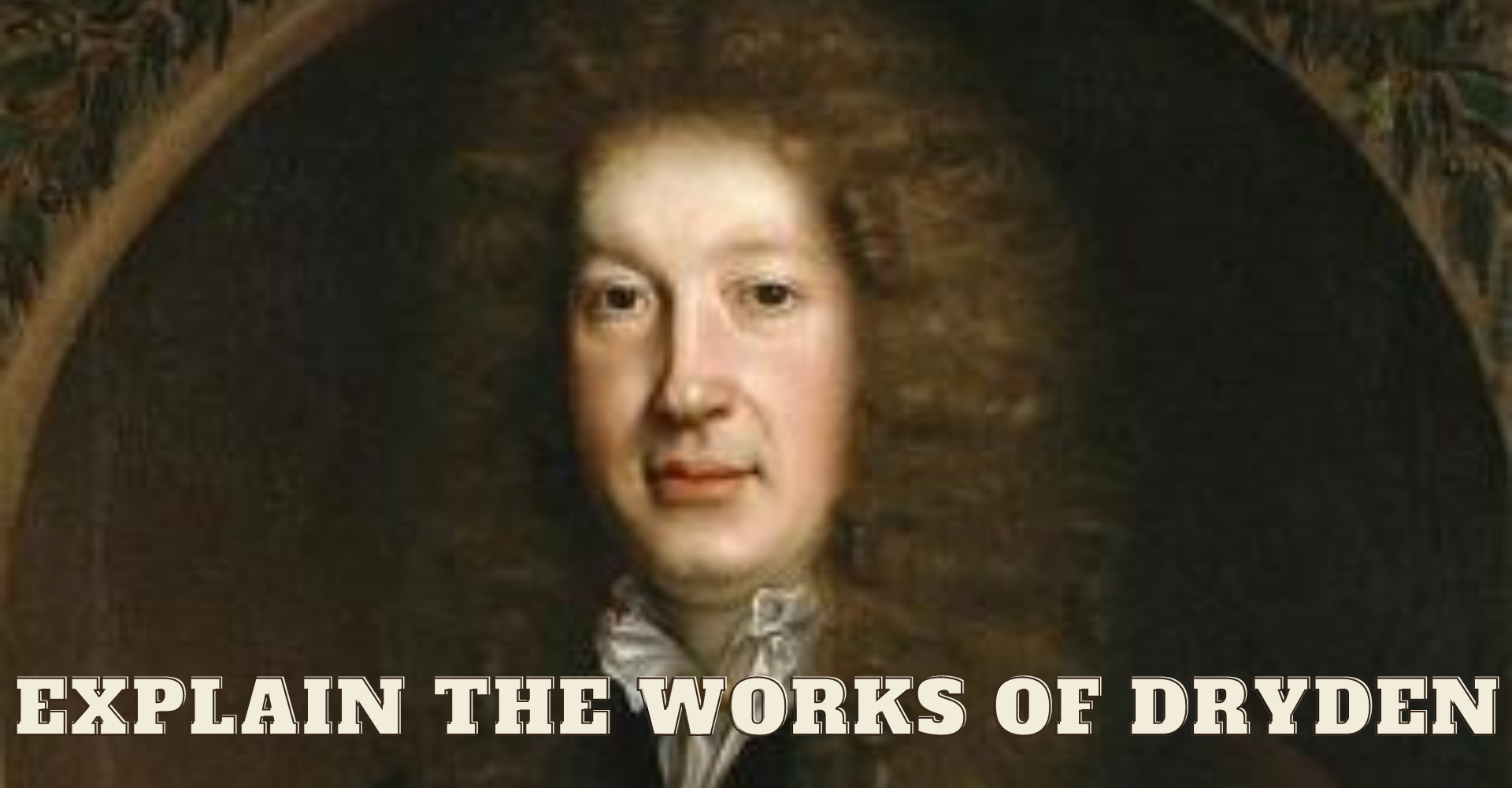The range of Dryden‘s Works is remarkable. David Nichol Smith says: “As poet, he writes satires and epistles, odes and songs, prologues and epilogues, elegies, tales and translations, poems descriptive, argumentative, or didactic : as dramatist he writes comedies, tragedies, heroic dramas, and operas as critic he reviews all the questions in the art of letters that were at issue in his day, and gives the estimate of the greatest poet; as prose writer, he is master of a style which is equally adaptable to the commonplaces of exposition, the cut and thrust of controversy, and the intimacies of conviction. In every kind of work he excelled. His serious rivals were only in the field of drama. He admitted that his genius never much included him to the stage, and that he had been outdone by some of his contemporaries in comedy. As a poet, and a critic, his pre-eminence was unquestioned.” It will be convenient to treat this section under three heads; poetry, plays and prose. We shall review here the major works of Dryden.
Poetry : Taine describes the poetic genius of Dryden as “pre-eminently robust and unromantic.” sir Edmund Gosse describes him as “the strongest poet of the age of prose.” Dryden’s poetry deals with common experience, not, of course, anything too metaphysical. His imagination, as Prof. Dobree says, “plays around the actions and passions of men and women as they live out their lives in soul as well as in body.” Otis and Needleman have pointed out: “His poems have the qualities of his plays-some middling songs and unspontaneous lyrics, careful and melodic versification, and lack of poetic expression of the different emotions. Despite touches of false ornament and operatic quality his odes are splendid. As a verse-satirist and character-writer he is unequalled, for he is consummately superb in handling the heroic couplet as it became established as the fashion of satiric poetry.”
Prof. Dobree has classified Dryden’s poetry into three groups: the occasional, the political-religious and the translations. The ‘occasional’ verses consist of epistles, odes, elegies and complimentary addresses. Oliver Cromewell died on the 3rd September, 1658 and Dryden wrote a poem in honour of his memory. The Heroic Stanzas is his first poem of any consequence written in quatrains; it is very superior to his earlier efforts. The ‘Heroic Stanzas’ was made popular by Gondibert of Sir William Davenant which Dryden was reading at that time. It is not antagonistic to the couplet; rather it is a mere development of the couplet.
Richardson of Oliver Cromwell, succeeded him and proved himself a great failure. In less than eighteen months of the publication of the Heroic Stanzas, Charles II was restored. This poem on the face of it represents reversal of Dryden’s political opinions. Nevertheless, it marks an advance in craftsmanship. Nicoll tell us, “Here again Dryden essayed experiments in the couplet form, endeavouring to make his verse smoother, his ideas more lucid, – his sentences more polished. Here we meet for the first time what was to be his true melody. All that had gone before may be regarded, when compared with this, as mere apprentice efforts.”
1666 is a “wonderful year” which marks two very important events: first, the war with Holland: and secondly, the Great Fire of London. Dryden has given a spirited historical account of these events in Annus Mirabils (1667). The first two-thirds of the poem describes the engagement with the Dutch in alliance with France, culminating in the naval victory over the Dutch on July 25th; the last one-third treats of the Great Fire which swept a great part of London during the first week of September.
Dryden wrote a few odes and elegies. Dryden’s first Ode for St. Cecilia’s Day was written in November 1687, at the request of the musical society formed four years before the celebration of the feast of St. Cecilia, the guardian saint of music.
The Ode on Anne Killigrew (1686) was written at the time of the funeral ceremony. This has received high praise from critics of eminence. Joseph pronounced it the best in the language. The only elegy which rings true is that On The Death Of Mr. Purcell. Here, we feel the poet was truly touched and has been thrilled by the majesty of the figure that had passed away.
PLEASE HELP ME TO REACH 1000 SUBSCRIBER ON MY COOKING YT CHANNEL (CLICK HERE)











